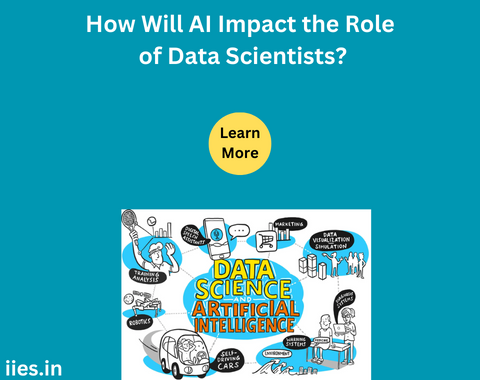1. Efficiency: AI-driven tools can process and analyze large datasets at a speed and scale that would be challenging for human data scientists to match. This efficiency enables organizations to make quicker and more informed decisions.
2. Pattern Recognition: AI excels at identifying complex patterns within data, uncovering insights that might be overlooked by human analysts. This capability is particularly valuable in fields such as finance, healthcare, and marketing.
3. Predictive Analytics: AI algorithms can predict future trends and outcomes based on historical data, enabling organizations to anticipate changes and make proactive decisions.
4. Automated Feature Engineering: AI can automate the process of feature engineering, a critical aspect of data preprocessing. This helps data scientists save time and focus on more complex aspects of analysis.
5. Scalability: AI allows for the scalability of data analysis processes, accommodating the ever-growing volume of data generated in today’s digital age.
The Role of Human Data Scientists:
While AI has demonstrated remarkable capabilities, it is important to recognize the indispensable role of human data scientists. Here are several aspects where human expertise remains crucial:
1. Problem Formulation: AI tools require well-defined problems and objectives. Human data scientists play a pivotal role in formulating the right questions, framing the problems, and defining the scope of analysis.
2. Context Understanding: AI lacks the ability to understand the broader context surrounding data. Human data scientists bring domain expertise and contextual understanding, ensuring that analysis aligns with organizational goals and industry nuances.
3. Ethical Considerations: Data science involves ethical considerations, such as privacy, bias, and fairness. Human oversight is essential to address these ethical dimensions and ensure responsible data practices.
4. Creativity and Innovation: AI excels at repetitive tasks and pattern recognition but often lacks the creativity and innovative thinking that human data scientists bring to the table. Creativity is vital for generating novel insights and solutions.
5. Communication Skills: Data scientists need to communicate findings effectively to non-technical stakeholders. Human data scientists possess the ability to translate complex technical insights into actionable recommendations that align with business objectives.
The Synergy of AI and Data Scientists:
Rather than replacing human data scientists, AI is better viewed as a powerful ally. The synergy between AI and human expertise can amplify the impact of data science. AI can automate routine tasks, allowing data scientists to focus on more complex and strategic aspects of analysis. The collaboration between humans and AI leads to a more dynamic and efficient data science ecosystem.
The Future of Data Science:
As AI continues to advance, the field of data science is likely to undergo significant transformations. Here are some potential scenarios for the future:
1. Specialization and Upskilling: Data scientists may evolve into specialized roles, focusing on areas where human expertise is indispensable, such as problem formulation, ethical considerations, and communication. Upskilling in AI tools and technologies will become essential for data scientists to leverage the benefits of automation.
2. AI Augmentation: Data scientists may increasingly rely on AI tools for augmentation rather than replacement. AI can assist in data preprocessing, feature engineering, and initial analysis, allowing data scientists to leverage their expertise in more nuanced and complex tasks.
3. Ethical Guidelines and Governance: As AI plays a more prominent role in data science, there will be an increased emphasis on establishing ethical guidelines and governance frameworks. Human oversight will be crucial to ensure responsible and ethical use of AI in data analysis.
4. Collaborative Ecosystems: The future of data science may involve collaborative ecosystems where human data scientists and AI systems work seamlessly together. This collaboration will harness the strengths of both, leading to more robust and comprehensive data analysis.

